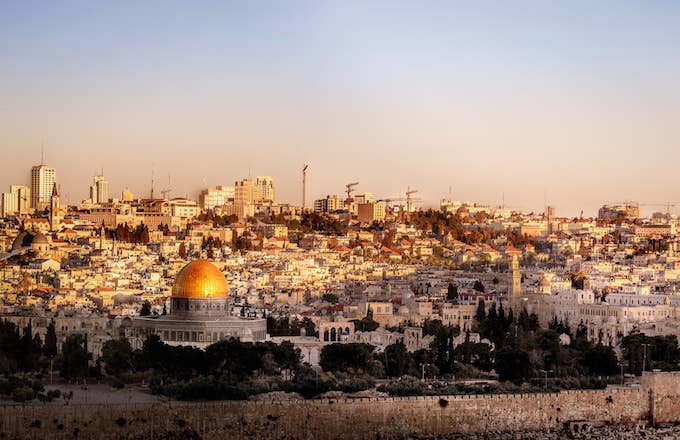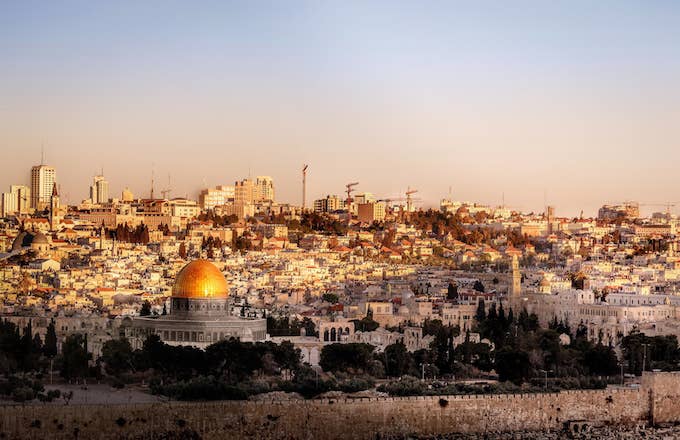
Today, Trump told Israeli and Arab leaders that he intends to recognize Jerusalem as the capital of Israel by moving the American embassy from its long-time home in the present capital Tel Aviv.
But this isn’t just a logistical move. Trump’s decision bears a lot of symbolic weight and could drop a metaphoric and literal bomb on peace efforts between Israel and Palestine, not to mention decades of American policy.
Since the U.S. recognized the state of Israel in 1948, they’ve always leaned toward the Israeli side of the Israeli-Palestinian conflict, albeit while "at least in theory, adhering to international law and worldwide consensus," when it came to certain important issues, Al Jazeera notes.
One of those issues is Jerusalem. The U.S. and the rest of the world has historically refused to formally recognize Jerusalem as the capital of Israel, as East Jerusalem is internationally considered an occupied territory– Israel took hold of East Jerusalem from Jordan in 1967 during the Six-Day War–and both Israelis and Palestinians claim the historic city as their capital.
According to international law, so long as an area is under military rule, Israelis are not allowed to change its status. The fourth Geneva Convention also clearly opposes an occupying power changing the status of an occupied area.
If Trump does indeed follow through and move the U.S. embassy, he would effectively delegitimize the U.S. as peace-broker in the region, since he would, quite literally, be picking a side (not just leaning towards one.) Also, the move would almost certainly foil son-in-law Jared Kushner’s efforts to revive Mideast peace talks, but Jared has not going to jail to worry about anyway.
The pending decision, which Trump is set to announce tomorrow, has elicited an outcry from the international community for the potential political fallout. King Abdullah II of Jordan issued a strong warning against the move, emphasizing "Jerusalem is the key to achieving peace and stability in the region and the world." Their concern is not without cause: Palestinian factions have already declared 'three days of rage' across the West Bank if Trump makes good on his word, prompting heightened security measures in Israel.
Israeli Prime Minister Benjamin Netanyahu has remained surprisingly quiet on Trump’s decision. Until recently, Netanyahu has been a vocal advocate for the move, but perhaps he realizes that if the reaction is as violent as many experts fear, he will surely be implicated, not just in the bloodshed, but the dissolution of peace talks altogether.
However, it’s not just Israelis who could potentially face a violent backlash. According to CNN, The State Department is bracing itself for unrest at overseas missions and the Pentagon has repositioned troops from embassies to countries where violence may break out.
So why rock an already leaky boat? Well, Trump got himself into quite the political (and completely avoidable) pickle by promising to move the embassy in his 2016 campaign, which was basically a tip of the hat (or hairpiece) to evangelicals and pro-Israel backers– Jerusalem is spiritually significant to Jews, Muslims, and Christians alike. They certainly were not happy when Trump signed the waiver in June to keep the embassy in Tel Aviv, keeping in tradition of every U.S. president since 1995.
Wherever one stands on the issue of Jerusalem, it is obvious that real-life risks outweigh a political win for one side. But it’s this kind of dogmatic thinking, completely bereft of consequential reasoning, that is the hallmark of this administration.

